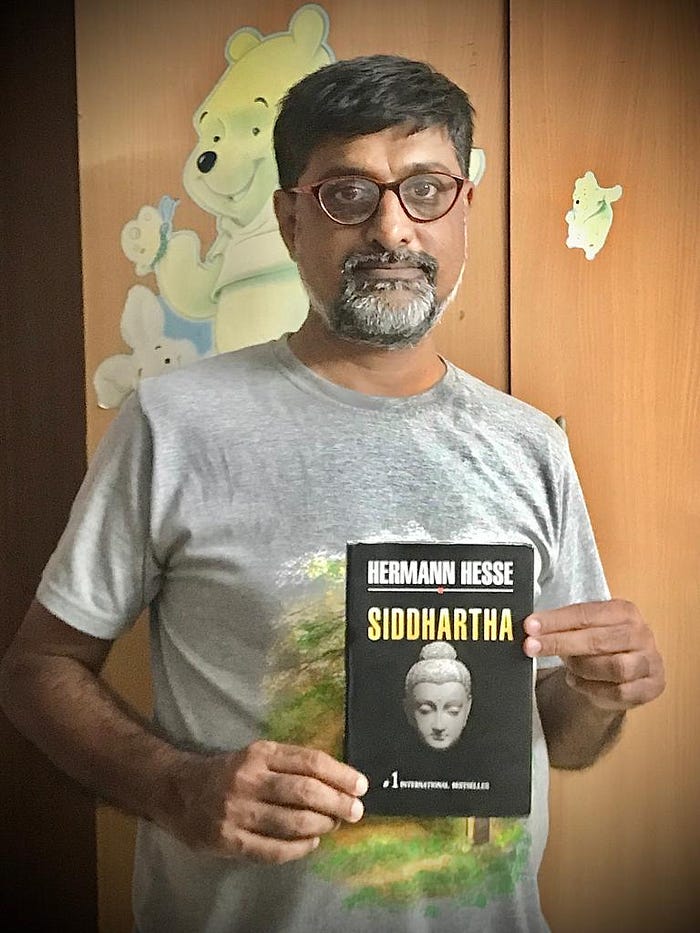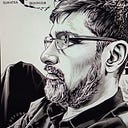Book Review: Siddhartha
‘Siddhartha’ is a book that portrays the journey of self-discovery by its protagonist named ‘Siddhartha’, who lives in the time of the Buddha ( also called Gautam, in the book, original name ‘Siddhartha Gautama’).
There are three types of readers to this book and one can find the reviews broadly in those perspectives. One who read it as fiction, another who read it for learning. There is a third group, mostly from Asia or from Buddhism, who feel that this book is a nicely wrapped package of myopic understanding of Buddhism by a Westerner.
I needed to set this perspective because I am a novice to Buddhism, so my ignorance shall make me see the book for what it is. A great piece of literature. The book covers the three religions that existed during the period in India. I read this book without doing any pre-read rituals that I normally do. The book explores spirituality, philosophy, religion, love, and culture — all in different stages.

What is wisdom?
We are conditioned to live dogmatic lives. Dogma is religion, faith, culture, nation, lack of faith, opinions, and judgments — all are like blinders on a horse. Faith is conditioned and knowledge has boundaries. Faith can be acquired and knowledge can be imparted. Wisdom is the sum of one’s individual experiences that are gained in life.
This comes out clearly when Siddhartha meets Gautama Buddha ( the Illustrious One) in the Jetavana gardens.
‘ To nobody, O Illustrious One, can you communicate in words and teachings, what happened to you at the hour of enlightenment…this clear, worthy instruction ( of yours) does not contain; it does not contain the secret of what the Illustrious One himself experienced.’
There is unity in diversity, and the people, things, places, time, and culture are diverse. It is important to accept this diversity, and that is true wisdom. True wisdom is about acceptance and uninhibited love of this diversity, Siddhartha realizes.
“It may be important to great thinkers to examine the world, to explain and despise it. But I think it is only important to love the world, not to despise it, not for us to hate each other, but to be able to regard the world and ourselves and all beings with love, admiration, and respect.”
― Hermann Hesse, Siddhartha
This book is profound as it debates both perspectives as two characters debate, teach and share experiences. There is always a teacher nevertheless. What the Brahmin, the Samana, the Buddha, the courtesan, and the merchant could not teach, the ferryman and the river teach Siddhartha.
Wisdom is what one finds in life, through unique experiences. Knowledge is what can be taught. No religion, teacher, guru, or book can teach wisdom, they give you knowledge. Wisdom ends with the fact that one knows nothing, but has experienced it.
“Wisdom cannot be imparted. The wisdom that a wise man attempts to impart always sounds like foolishness to someone else … Knowledge can be communicated, but not wisdom. One can find it, live it, do wonders through it, but one cannot communicate and teach it.”
What is life?
Life is the sum of all experiences we go through. It is a stream of events and experiences, and the sum of all experiences is the source of one’s wisdom.
“And all the voices, all the goals, all the yearnings, all the sorrows, all the pleasures, all the good and evil, all of them together was the world. All of them together was the stream of events, the music of life.”
The river teaches us this profound truth. It is the ferryman, the rain, the sea, the boat, the passenger, and the waterfall — all at the same time. It is present everywhere. Life is present everywhere.
What is the most important thing in life?
“And here is a doctrine at which you will laugh. It seems to me, Govinda, that love is the most important thing in the world.”
Siddhartha tells Govinda towards the end that love is the most important thing in the world. That is why, Gautama Buddha, even if he knew in his profound wisdom that he cannot translate his experience of wisdom to others, spent time teaching his learnings, because of his deep love towards fellow beings.
The teaching is Gautama Buddha’s act of love towards fellow beings. That is the greatness of the Illustrious One, says Siddhartha.
“Not in his speech, not in his thoughts, I see his greatness, only in his actions, in his life.”
Wisdom is about life and love:
Siddhartha finally discovers that knowledge and faith can be the real blinders in one’s discovery of the self. When one lives their life with the profundity of experience it offers, one attains true wisdom. But one can never share this wisdom but can impart love — which is acceptance of things as they are, with an open mind.
Hermann’s view would sound like today’s agnostic liberalism, but it is much more than that. I would say that Siddhartha is Hermann’s quest for wisdom and he has shared his learnings through the fictional story has created. Unlike other reviewers, I feel that the characters of Govinda — his friend, Kamala — the courtesan and his lover, Young Siddhartha — his son, and most importantly, Vasudeva — the ferryman are deeply etched characters that shape Siddhartha’s discovery of his self.
This book is a must-read like Paulo Coelho’s Alchemist, for it is a journey of discovery if read with an open mind.
~Ashok Subramanian © 2022
